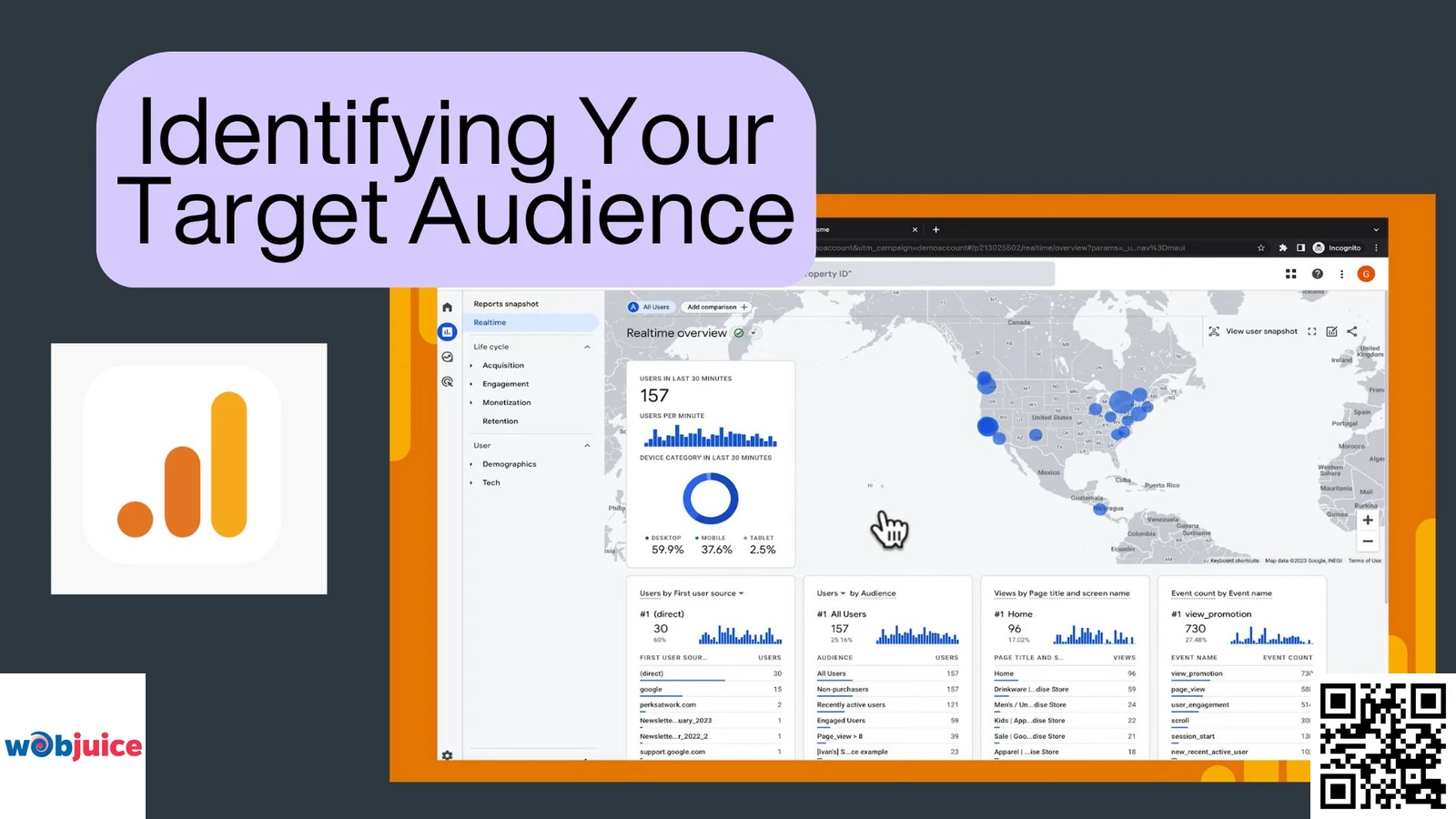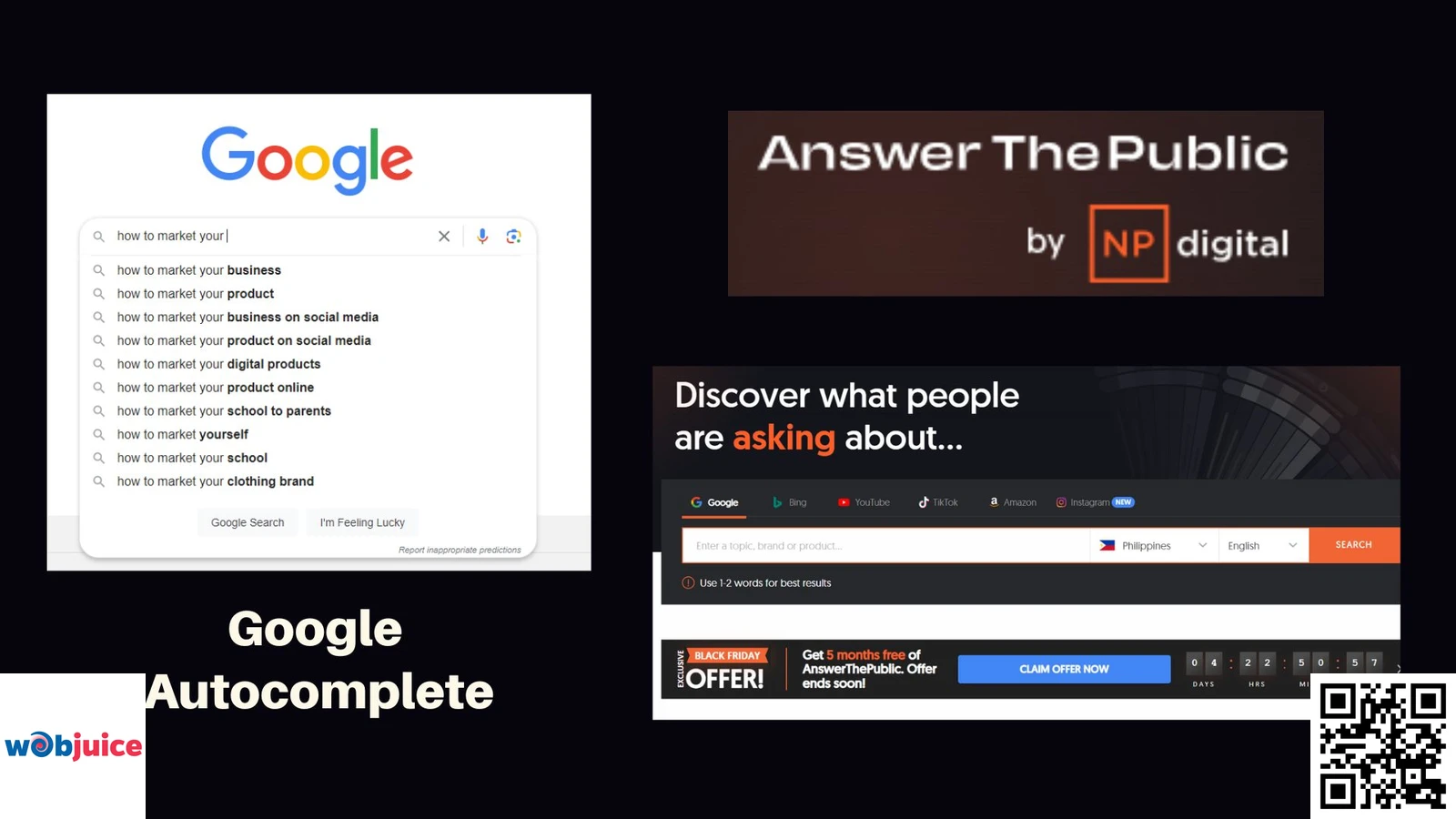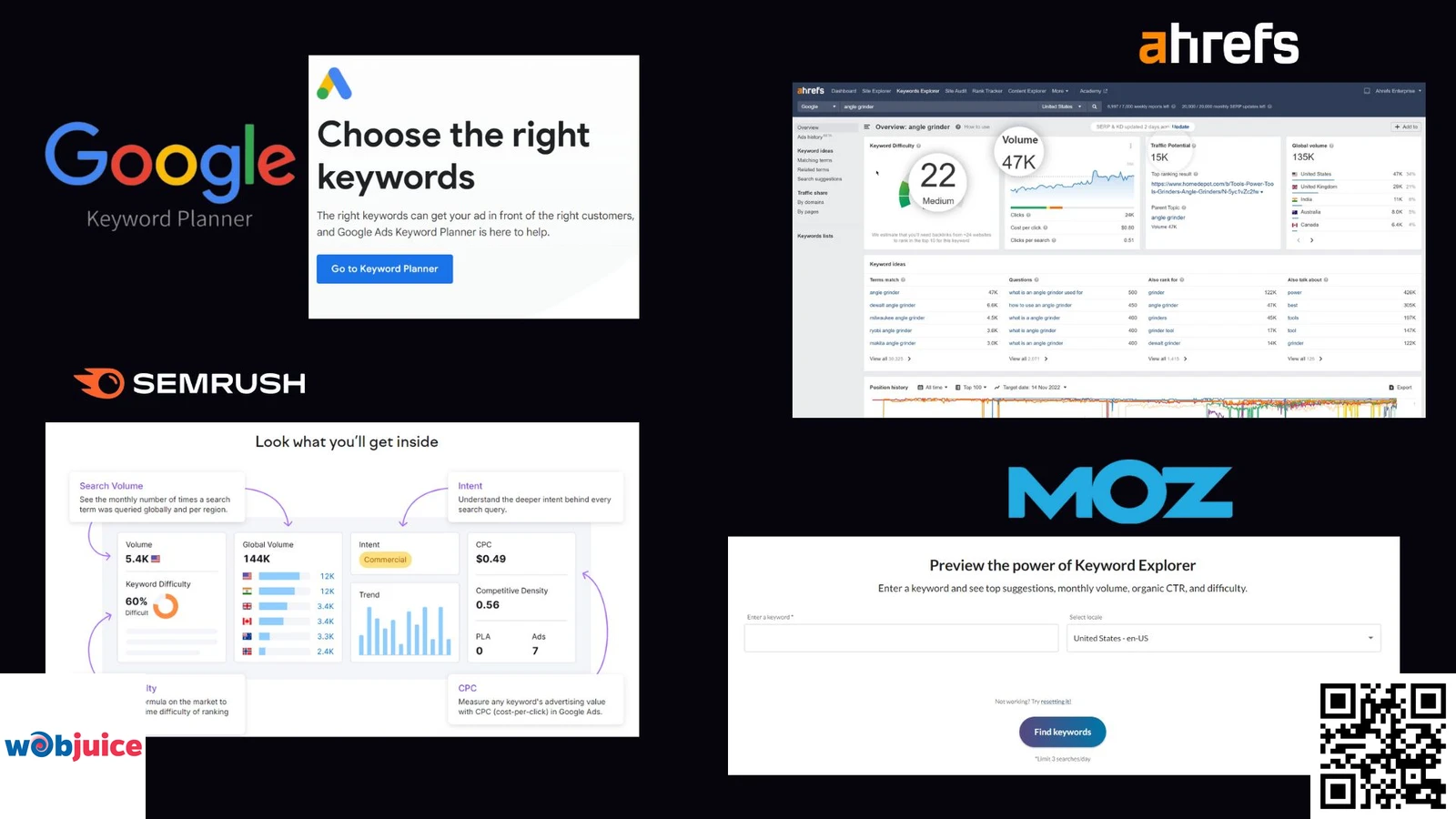In the digital landscape, visibility is synonymous with opportunity. At the very heart of achieving this visibility lies a critical, strategic process: keyword research. It is far more than merely listing popular search terms; it is the foundational practice of understanding your audience’s language, intent, and needs to bridge the gap between their questions and your content. Effective keyword research is the cornerstone of a powerful on-page SEO strategy, guiding content creation and website architecture to attract qualified, engaged traffic primed for conversion.
This comprehensive guide demystifies the essential journey from initial concept to successful implementation. We begin by exploring the pivotal role of keyword research, defining its core purpose in aligning your digital assets with real-world search behavior. The process is then systematically unpacked, starting with the crucial first step of identifying your target audience—because knowing who you are speaking to informs what they are searching for. We then delve into practical techniques for brainstorming a robust portfolio of keyword ideas, emphasizing the immense value of long-tail keywords for capturing specific intent with lower competition.
Furthermore, the guide provides a clear framework for analyzing vital keyword metrics—such as search volume, competition, and commercial intent—to prioritize opportunities that offer the best return on effort. You will also discover an overview of premier keyword research tools, like Google Keyword Planner and SEMrush, which empower this analytical process with critical data. Finally, we translate theory into action, outlining best practices for seamlessly and effectively implementing your chosen keywords across titles, headers, and content to maximize SEO impact, user engagement, and ultimately, business growth.
Key Takeaways
- Begin with Google Keyword Planner and SEMrush.
- Know your target audience and how they search for things.
- Next, look at keyword details like search volume, competition, and CTR. This helps you focus on good keywords.
- Then, take the main ideas and turn them into long-tail keywords.
- After this, use keywords wisely in titles, headers, and text. This improves SEO and keeps the audience engaged.
Understanding Keyword Research
Keyword research is the process of finding specific words and phrases that customers use when searching online.
When you start keyword research, you will see it’s the key part of a good on-page SEO.
They can improve your keyword research and help you find useful information.
Keyword research means looking at how many people search for terms, how hard it is to rank for them, and whether they fit your site.
You should aim for keywords that bring visitors and turn them into buyers.
Longer keywords usually have less competition and can bring very specific traffic to your site.
They are important for reaching small markets and answering special questions.
Keyword research tools can make this process easier.
These tools help you find chances that might not be clear at first.
When you spend time learning about keyword research, you are building a strong base for your SEO plan.
This leads to more engagement and higher rates of success.
Identifying Your Target Audience
To find your target audience, start by looking at your current customers.
Search for patterns in their age, interests, and habits.
This information helps you make your content appealing to new customers.
Think about the challenges and needs of your audience.
Use tools like Google Analytics or social media insights to improve what you know.
Notice the words your audience uses.
This can show you important keywords and phrases you may not have thought of.
Knowing your target audience is the key to a good SEO audit plan.
It helps you make content that talks to potential customers.
This can raise the chance of people engaging with your content and buying something.
Brainstorming Keyword Ideas
Start by listing topics related to your business or industry.
Think about the problems your audience has and the solutions you provide.
This way, you will create a list of main ideas.
Content optimization is important for winning in digital marketing.
It begins with good keyword research.
Make those ideas into longer keywords.
If you have a bakery, think of phrases like “gluten-free cupcakes” or “vegan birthday cakes.”
These specific terms aim at smaller groups of people.
They help you get more organic traffic that can turn into sales.
Use tools like Google Autocomplete, Answer The Public, or forums to find out what people are asking.
These resources show common questions related to your topics.
Analyzing Keyword Metrics
Analyzing keyword metrics is very important, you can start with search volume.
This shows how many times people search for a keyword.
Popular keywords with high volume can attract more visitors.
But they are usually harder to rank for.
Next, check keyword difficulty.
This shows how hard it is to rank for a specific word.
Aiming for relevant keywords with less competition could give you faster results.
Also, think about the click-through rate (CTR).
A higher CTR shows that people like your content.
The cost-per-click (CPC) is an important measure, especially for pay-per-click ads.
This knowledge will help you make better content and improve your website for higher search engine rankings.
Exploring Keyword Research Tools
The best keyword research tools are Google Keyword Planner, SEMrush, Ahrefs, Ubersuggest, and Moz Keyword Explorer.
Google Keyword Planner gives you search volume data and suggests similar keywords.
SEMrush provides a detailed look at keyword variations and insights and analyses about competitors.
Ahrefs is a top choice for SEO experts. It has strong tools for finding keywords and analyzing backlinks.
Ubersuggest is great for people who are on a budget.
Moz Keyword Explorer mixes keyword ideas with SERP analysis.
When doing keyword research, using the right tools can help you.
A good keyword research tool can show you important search terms, find popular topics, and check out how much competition there is.
These tools have different features to help you with your keyword research.
You can use them to find new keyword chances, look at other people’s strategies, and check how your keywords are doing.
Implementing Your Keywords
Implement your keywords, begin by adding main keywords to page titles, headers, and meta descriptions.
Include keywords in your text without forcing them.
Think about making special landing pages or blog posts for certain keywords.
This helps increase your site’s authority and gives useful information to users.
Internal linking is also very important.
Use anchor text that has keywords to connect useful pages.
Monitor keyword performance using analytics tools.
Focus on what works and improve what does not.
Good keyword use helps the website be more visible, brings in more traffic, and boosts conversions.
This will help keep a professional look and meet the needs of your audience.
With these strategies, you will improve your website’s performance.
You can reach your target audience more easily.
Keyword Research FAQ
Expert answers to common questions about SEO keyword strategy, tools, and best practices for better search engine visibility.
What is the single most important factor to consider when choosing keywords?
Targeting the correct intent ensures your content satisfies the user, which is a primary ranking signal for Google. A high-volume keyword with the wrong intent will result in a high bounce rate and poor conversions, negating any traffic benefit.
Always analyze the current top-ranking pages for a keyword to understand the intent it serves before targeting it. Use tools like Google Search Console to see what queries your pages already rank for and their corresponding click-through rates.
Pro Tip: Create content clusters around core topics with mixed intent keywords to capture users at all stages of the buyer journey.
Why are long-tail keywords so valuable for SEO and content strategy?
- Lower Competition: They face less competition from authoritative domains, making it easier for new or established sites to rank.
- High User Intent: They demonstrate specificity, attracting visitors further along in the buying journey with higher conversion potential.
- Content Ideation: They provide a wealth of specific questions and gaps to address, building topical authority.
Collectively, a portfolio of long-tail keywords drives sustainable, qualified traffic and forms a protective moat against competitors. They also help Google better understand your content’s niche expertise.
Pro Tip: Use tools like AnswerThePublic or SEMrush’s Topic Research to discover long-tail variations around your core topics.
How do I use Google Keyword Planner effectively if I don’t run ads?
- Input 5-10 core seed keywords related to your business or niche
- Review the “Keyword Ideas” tab for hundreds of relevant suggestions
- Focus on average monthly search volumes and competition levels
- Filter by relevant categories to narrow down suggestions
For organic strategy, prioritize keywords with a healthy search volume but “Low” competition in the planner as a starting point, then validate with other SEO tools for organic difficulty scores.
Remember that Keyword Planner’s competition metric is for paid ads, but it often correlates with organic competition. Export your keyword list and cross-reference with tools like Ahrefs or Moz for a complete picture.
What’s the difference between keyword difficulty and competition?
These terms are often confused but represent distinct concepts in SEO analysis:
| Metric | What It Measures | Where You See It |
|---|---|---|
| Competition | Number of advertisers bidding on a keyword | Google Keyword Planner |
| Keyword Difficulty (KD) | Estimated difficulty to rank organically in top 10 | Ahrefs, SEMrush, Moz |
For SEO, prioritize Keyword Difficulty. A keyword with low advertiser competition can still be extremely difficult to rank for organically if authoritative domains dominate the results.
Pro Tip: Balance KD with business relevance. Target keywords with KD scores below 40 initially to secure early wins and build authority before tackling more competitive terms.
How often should I update or revisit my keyword research strategy?
- Emerging trends and seasonality in your industry
- Google algorithm updates affecting search behavior
- Changing user language and search patterns
- Competitor content strategy shifts
Monitor performance monthly using Google Search Console and analytics to identify new ranking keywords, dropping positions, and emerging opportunities.
Set up a quarterly keyword review process that includes:
- Analyzing current keyword performance metrics
- Identifying new keyword opportunities from search trends
- Refreshing underperforming content with updated keywords
- Evaluating competitor keyword strategies
Pro Tip: Use Google Trends to spot seasonal patterns and emerging topics in your niche, and adjust your keyword strategy accordingly.
Conclusion: Elevating Your Strategy: The Path to Sustained SEO Growth
Mastering keyword research is not a one-time task but an ongoing cycle of refinement and adaptation that forms the backbone of sustainable SEO success. By embracing the structured process outlined—from audience analysis and strategic brainstorming to meticulous metric evaluation and precise implementation—you build a content ecosystem that naturally resonates with both search engines and your target audience.
Remember, the ultimate goal transcends simple rankings. It is about connecting with intent. By prioritizing relevant, long-tail keywords, you attract high-quality traffic with a clear purpose, dramatically increasing the potential for engagement and conversion. The insightful use of powerful tools transforms guesswork into data-driven strategy, allowing you to confidently allocate resources to the most promising opportunities.
As you move forward, commit to these key actions:
Audit and Update Regularly: Search trends evolve. Continuously monitor keyword performance and refresh your strategy.
Balance Volume with Relevance: Integrate a healthy mix of head terms and long-tail phrases to build authority and capture niche intent.
Focus on User Value: Always use keywords as a guide to create genuinely helpful, authoritative content that satisfies search intent.
By embedding these principles into your workflow, you transform keyword research from a technical exercise into a powerful engine for organic growth, ensuring your digital presence remains visible, competitive, and consistently valuable to those seeking your solutions.










